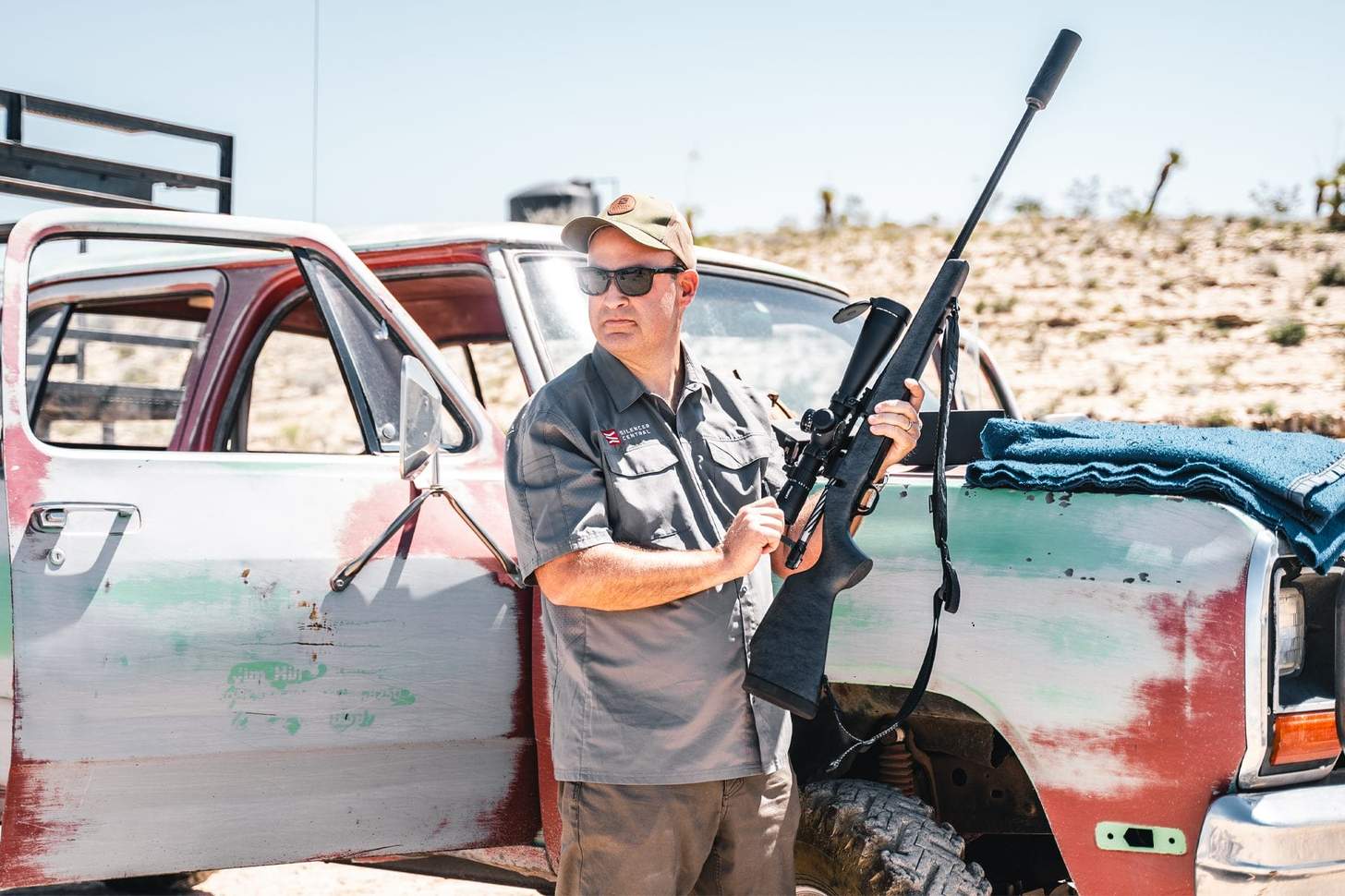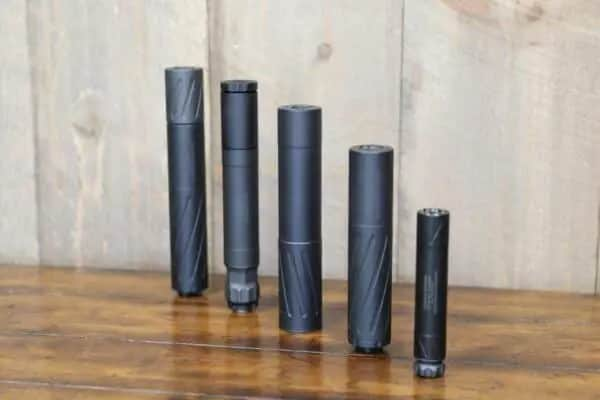Welcome to H&B’s business profile. Here we explore the dollars and sense behind the brands you love. This is not just some surface-level profile, but rather a deep dive into the financial side of the company. Whether you are an entrepreneur or aspire to become one, learn what it took for these founders, CEOs, and executives to become industry leaders. In this issue, we sat down with Brandon Maddox, founder and CEO of the ever-growing Silencer Central.
H&B: What spurred you to form Silencer Central?
Brandon Maddox: I was working in the pharmaceutical industry and I had moved my way up fairly quickly. During that time, I hired an executive coach, Brian Tracy. He helped me get into the mindset of wanting to transition from corporate America, where I'd done really well, to owning my own business. The hard part was figuring out what I wanted that business to be.
I set up an LLC and had a business card made saying I was the President and CEO of BMaddox Enterprises. It was a good way to get up and running mentally and I think that it helped me start getting some momentum on my journey.
Then, when I moved to South Dakota, my wife's family was really big into firearms. So, I bought a shotgun and learned to hunt pheasants and next a rifle to shoot prairie dogs—which would run back to their hole after the shot was taken. My father-in-law and I saw a silencer at a gun show once and it gave me the idea that it might work to not spook prairie dogs. So, I ended up buying one on a whim. I went through a really tough process at a gun store and decided the next time I was going to do it myself.
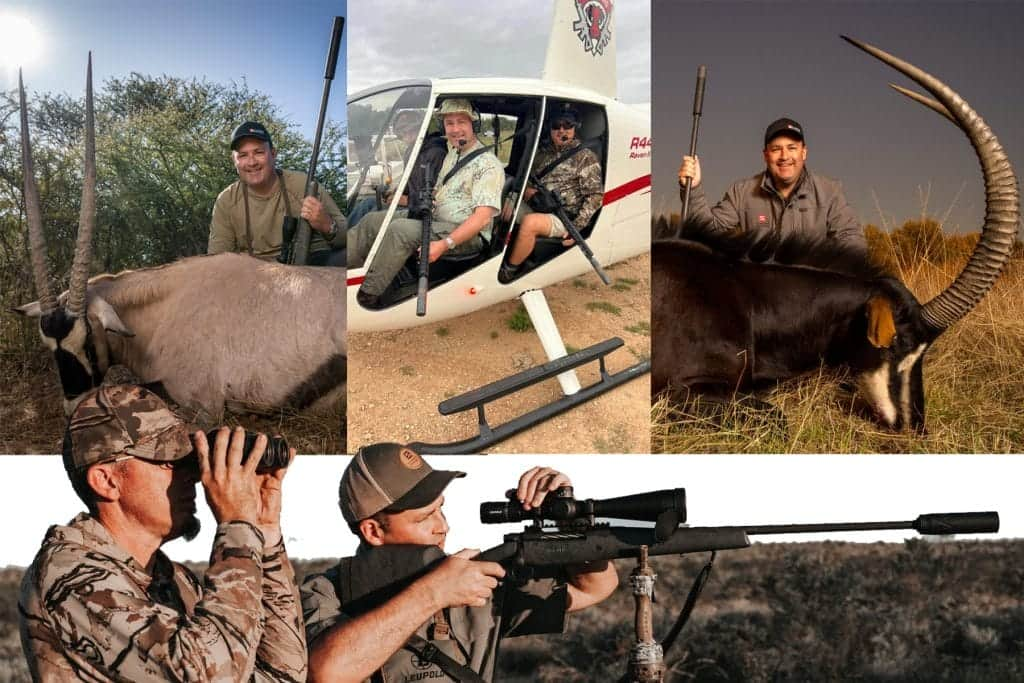
H&B: When did Silencer Central officially form and when did you start BANISH and begin doing things in-house?
Brandon Maddox: I'd say 2005 is when I started it, but it didn't really start getting legs until about 2009. Then, 2012 is when I ended up buying a location and it sort of hit a stride. I called Liberty Suppressors and asked them if I could come visit because they were making some titanium silencers that tested really quiet. They started what I would call “white labeling.” They still had their name on their silencers, but they would make them for us too.
Then, I was approached at a gun show by the Mack brothers (Allan and Dale) who used to work for Dakota Arms. They were well known for their rifles, and together we tested every silencer on the market with a pro decibel meter. Then we gave the Mack Bros the quietest ones and said, ‘Hey, come up with something that's lighter and just as quiet.’ And that kind of became the story. My first company was South Dakota Silencer. Then, funny enough, I opened the North Dakota market up and I had North Dakota and South Dakota Silencers.
H&B: What was your cash flow like at the time?
Brandon Maddox: I was a pharmaceutical regional sales manager and my wife was a pharmacist, so we had good income coming in from our day jobs. But I had to buy all the silencers upfront in the fall timeframe. There were times when even dealer transfers for me to buy a silencer would take three months. The money thing wasn't good just because it was all a risk. We didn't even know how many we were going to sell that year, but were trying to buy enough because our gun shows back then were in January, February, March, and a week or two in April.
H&B: What were early sales like for you?
Brandon Maddox: The truth is—and I don't tell many people this—but when I first started I honestly saw it as a way to minimize my taxes on my day job. Because you had to go out and buy a truck and a trailer to go to the shows, you had to buy rifles to put the silencers on and you had to buy inventory—before you know it you might have $150,000 worth of expenses (write-offs).
H&B: So, this was just a great way to offset a successful career as a pharmacist while fulfilling a passion?
Brandon Maddox: Yes. The hard part was anytime we moved to a new state or did a new show, we almost had to prove ourselves again, so we wouldn't really sell that many. At first, it was just South Dakota and North Dakota, then it became Nebraska. Soon we got to a point where we were in every state touching South Dakota, and we just worked events that were 4.5- to 5-hour radius. We would talk to a ton of people and give a ton of brochures and business cards away. We were really fighting for the business each time.
The money was not there for a long time, and it felt like we were starting over every time we moved to a new state. Also, at that time, in Minnesota and Iowa, they were still illegal.
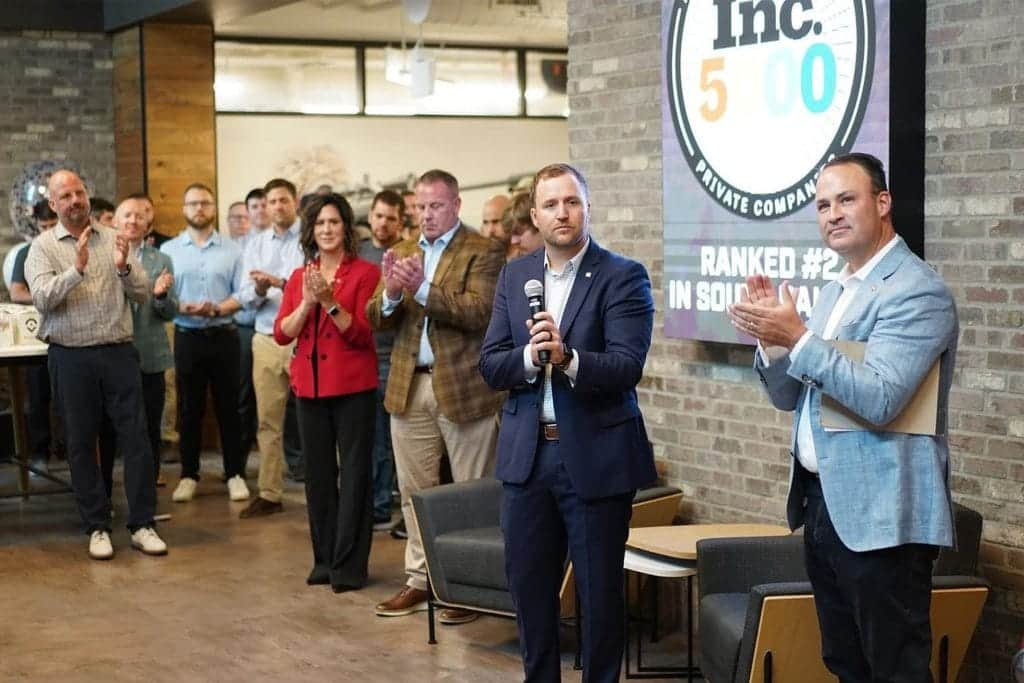
H&B: When you finally began to break even what were your next decisions?
Brandon Maddox: I would say the first step I had to make was hiring someone. I was working so many shows and people would basically buy from me. Then, I'd do the paperwork when it came back approved. Back then you had to pick up your suppressor, so usually I would meet customers at a show in the state where they were a resident or they’d come to my house and pick it up if they were in South Dakota.
Next, was to look for space in an office building. The space I found was only about 300 square feet, and I think it was $60,000 to buy it. The bank said we would be a reputational risk based on our name being Silencer Central and they were unwilling to lend me the money to buy it, even though our house was paid for and worth more than $60,000—which was the collateral I wanted to use. Finally, I bought a building and hired a guy to work the shows with me. I ended up hiring his girlfriend too, who knew a ton about guns, and she was my first receptionist.
H&B: What was the first real setback and some of the pain points, and how did you overcome them?
Brandon Maddox: I started from my house and I had a manufacturer's license. One day I got a letter from the city that said they were revoking my home-based business permit. And the same day I got a call from the ATF that said we're revoking your FFL license because the city of Sioux Falls is not going to let you have a license from your house because it's a manufacturer's license and it's not zoned for you to do manufacturing. I tried to explain that I wasn’t doing manufacturing. I called my father-in-law to talk about it all. During the conversation, I found out his roommate in college had been the CEO of Citibank, which had its charter in South Dakota. And it just so happened that the mayor of Sioux Falls had worked for this guy at one point. So, I made a quick call to him and explained the situation. Within a few days, it all got sorted out, but at first, I was like, “Wow, this is bad.”
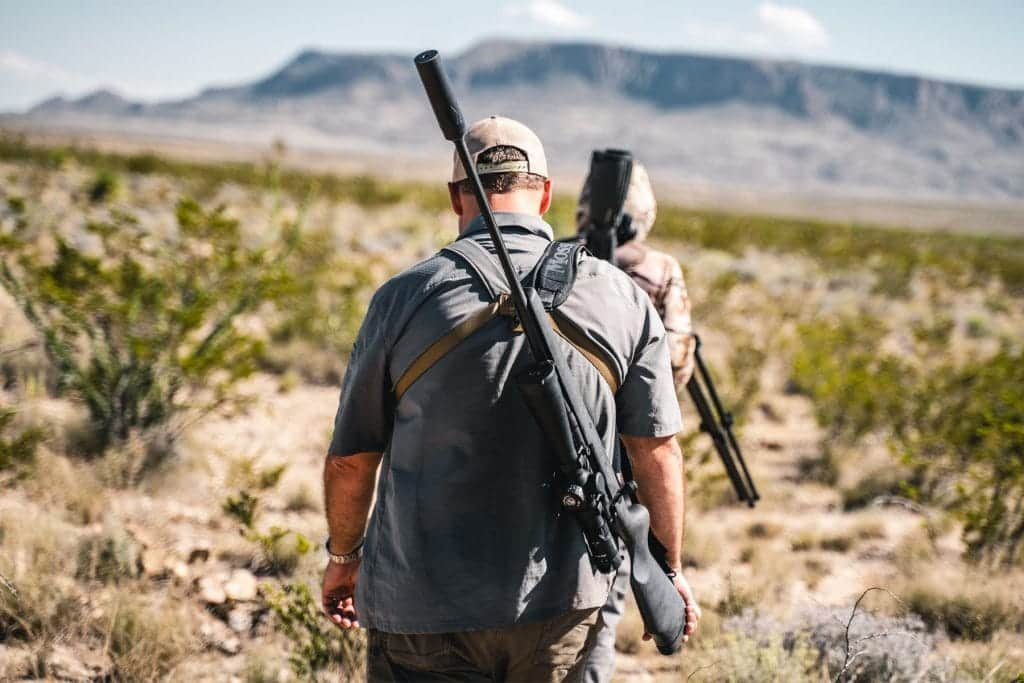
H&B: What was that first major benchmark that you hit? And how do you judge those goals?
Brandon Maddox: Everything’s digital now, but years ago you used to get paper copies of approvals from ATF. I've had situations where we had to have a pallet to pick them all up. That was exciting.
H&B: Concerning current top-line figures, what are you guys doing now?
Brandon Maddox: Over $100 million. And I think we’ll probably double that next year.
H&B: What do you see in your overall growth strategy?
Brandon Maddox: I think it's partnering. Maybe go to other manufacturers that don't sell silencers and say, ‘Hey, how about we co-promote one?’ We're working with MeatEater and Buck Commander right now. We worked with them to co-create a silencer. We also want to partner with big firearms manufacturers that currently haven't gotten into the suppressor game, create a silencer for them, and then do a similar delivery model.
H&B: How do you intend to maintain growth?
Brandon Maddox: Our insight is that the biggest reason why people don't buy is because of the process. So, if you can hold their hand and make the process easy, they're going to buy. Also, if you think about it, most people didn't even know it was legal to own a suppressor until recently. There are so many gun owners out there who do not own a suppressor, so for now, I think we can continue to grab more market share. It’s wide open.
H&B: What’s next for Silencer Central?
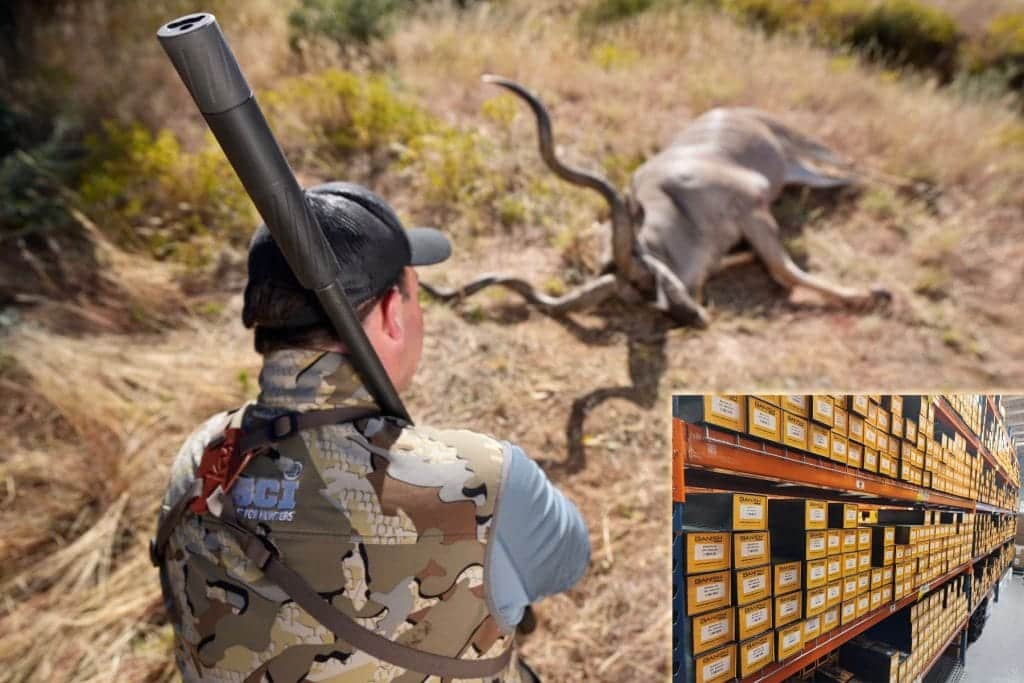
Brandon Maddox: I would say what's next for us is to continue to get our name out there. Also, as the company grows so quickly, there are a lot of spots in the building that we don't have the seats filled yet, so hiring the right people.
I think the next step is just creating more awareness. That's why you see us sponsoring a lot of stuff. A lot of people haven't heard of Silencer Central unless they went to events, sometimes it's hard to get as much advertisement online as we would like. I think you will see more co-promotes and see us on other websites that are selling firearms, adding us as an option. Silencer Central will deliver it after you buy it.
For more Hook & Barrel INSIDER intel on all things Silencer Central, please visit hookandbarrel.com/insider/silencer-central
